WITNESS RADIO MILESTONES
Unprecedented Wave of “Criminalization” Sweeping the Globe to Silence Indigenous Peoples
Published
7 years agoon
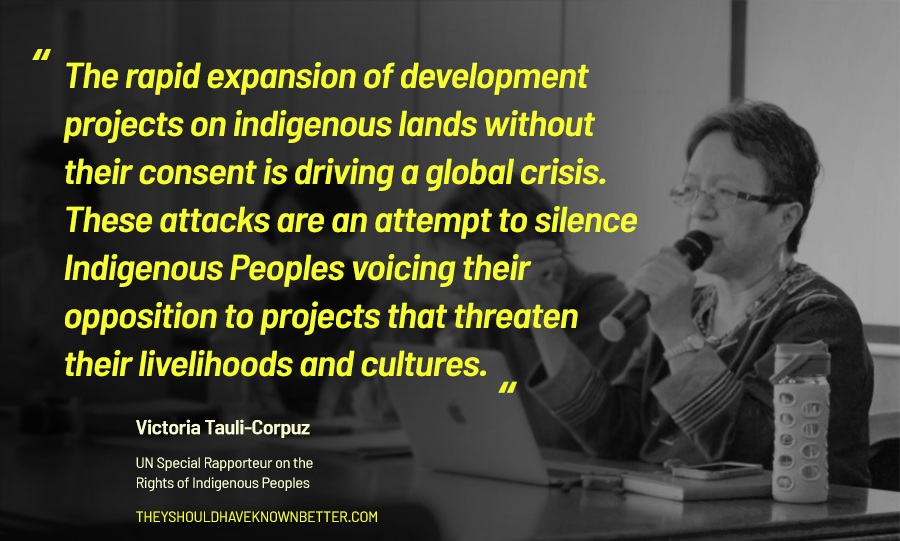
New UN report highlights drastic increase in violence and legal harassment driven by rapid expansion of development projects on indigenous lands
A significant pattern of abuse has emerged in a wide variety of countries, in which both physical violence and legal prosecution are used against Indigenous Peoples defending their rights and lands, according to a new report that UN Special Rapporteur on the Rights of Indigenous Peoples Victoria Tauli-Corpuz submitted to the UN Human Rights Council today.
The report describes how private sector interests collude with governments in coveting the lands of Indigenous Peoples for economic development projects. “Criminalization”—the process of turning those defending their land rights into criminals—has become an increasingly common tool and contributes to how these disputes often transform into open conflicts. While the majority of indigenous individuals who face criminal charges are men, women bear the brunt of their absence as they have to single-handedly assume all responsibilities in their families and communities.
“I’ve been alerted to hundreds of criminalization cases from nearly every corner of the world,” said Tauli-Corpuz. “The rapid expansion of development projects on indigenous lands without their consent is driving a global crisis. These attacks—whether physical or legal—are an attempt to silence Indigenous Peoples voicing their opposition to projects that threaten their livelihoods and cultures.”
Since June 2014, when her tenure as Special Rapporteur began, Tauli-Corpuz has witnessed a significant uptick in cases of criminalization and violence in the Philippines, as well as in Brazil, Colombia, Ecuador, Guatemala, Honduras, India, Kenya, Mexico, and Peru.
Many of the worst violations are driven by rising militarization, national security acts, and anti-terrorism legislation. These can put Indigenous Peoples in the line of fire—literally—of army and police forces. During and shortly after her most recent official country visit to Guatemala in May 2018, seven indigenous leaders were killed. Another activist was murdered just two weeks ago.
“Indigenous leaders in Guatemala who raise their voices face arbitrary detention, torture and sexual harassment from the police, and even murder,” said Aura Lolita Chávez Ixcaquic of the Maya K’iche’ People for the Defense of Life, Mother Nature, Land and Territory. “The justice system not only fails to address our concerns—it is a tool for the state and private interests to attack the authorities and leaders of our communities.”
The Special Rapporteur herself was one of 600 people labeled a terrorist in a legal petition filed in her native Philippines by President Rodrigo Duterte’s government. Although her name and three others were removed from the petition—in the week before her criminalization report was expected to be released—the vast majority of people on the petition remain blacklisted.
Ms. Tauli-Corpuz has noted that the charges were retaliation for her advocacy on behalf of displaced Indigenous Peoples in the Mindanao region of the Philippines, who have faced criminalization and military actions for resisting coal mines and other developments targeting their lands.
“There is widespread impunity for those who commit violence against Indigenous Peoples,” said Anne-Sophie Gindroz, RRI Facilitator for South East Asia. “At the same time, justice systems can be used against indigenous human rights defenders. In Indonesia, for example, people have been arrested for remaining on their land after it was granted to palm oil companies by the government.”
The report notes that violence and criminalization can even extend to lawyers and civil society advocates working with Indigenous Peoples. Gindroz, a longtime indigenous activist, was expelled from the Lao People’s Democratic Republic.
“In 2016, I had to flee my country, and my entire organization went underground,” said Alfred Brownell, founder of Green Advocates, an organization of lawyers, community mobilizers, and women that advocates for the land rights of Liberia’s rural communities and the environment. “These communities are not opposed to development, but they want a say in what happens to the lands they have called home for generations. Some 3 million Liberians depend on customary territories, but their rights are in limbo until we pass vital legislation that has been debated for four years now.”

Across the world, laws are stacked against Indigenous Peoples. A new report from the World Resources Institute finds that the process to formalize indigenous and community land rights is extremely costly and complex, sometimes taking up to 30 years—while companies can typically secure long-term rights to land in as little as 30 days.
While the majority of recorded cases were associated with opposition to business interests, in other instances Indigenous Peoples’ ways of life are deemed illegal in the name of conservation(link is external), leading to arrests, forced evictions, and other human rights violations.
“Conservation has been given as an excuse for escalating violence against the Sengwer Indigenous Peoples living within their ancestral lands in the Embobut forest in Kenya. Some have even been killed,” said Yator Kiptum, Executive Coordinator of the Sengwer Indigenous Peoples Programme. “The Kenyan Forest Service has repeatedly forcefully evicted and burned Sengwer homes and arrested community members—in spite of the fact that the court issued an injunction to prevent such evictions. Sengwer Indigenous Peoples want to live in, govern, manage, and own their ancestral lands working hand in hand with the government and other stakeholders—this is the only way to ensure sustainable conservation of forests. Eviction will only lead to further destruction.”
From defamation to indefinite detention and worse, despite UN treaties
Criminalization typically occurs as part of the government “push back” when Indigenous Peoples oppose large-scale projects. Leaders are targeted as a strategy to suppress and silence entire communities. While the process can vary, it often follows a similar pattern:
- Smear campaigns: Fueled by hate speech based on racism and discrimination, smear tactics and defamation campaigns on social media portray Indigenous Peoples as members of criminal gangs, guerrillas, terrorists, and threats against national security.
- Criminal charges: Indigenous leaders and their communities are often accused of vague charges—such as “perturbation of public order,” “usurpation,” “trespassing,” “conspiracy,” “coercion,” and “instigation of crime.” “States of emergency” are used to suspend judicial guarantees and suppress peaceful protests.
- Arrest Warrants: Warrants are repeatedly issued despite poor evidence and uncorroborated testimony. At times, accusations fail to name people, leaving an entire community accused of a criminal act. Many times, warrants are left pending, unexecuted, leaving the indigenous person affected under a perpetual threat of arrest.
- Illegal shortcuts: The prosecution of indigenous individuals often includes pre-trial detention that can last up to several years, as procedural guarantees are frequently flaunted. Indigenous Peoples seldom have the means to seek legal counsel or even an interpreter. If acquitted, indigenous individuals are rarely awarded remedies.
- Mass criminalization: Indigenous organizations have been subject to illegal surveillance and confiscations while laws imposing registration requirements and funding controls weaken their mobilization and restrict their support. Civil society organizations and lawyers who assist indigenous communities have been physically attacked and even killed.
The report lists a number of international treaties and conventions that provide protections for the rights of Indigenous Peoples and local communities. These agreements include:
- United Nations Declaration on the Rights of Indigenous Peoples (UNDRIP)
- International Covenant on Civil and Political Rights (ICCPR)
- Universal Declaration of Human Rights
- International Labour Organisation Convention on Indigenous and Tribal Peoples No. 169
- International Covenant on Economic, Social and Cultural Rights
- United Nations Framework Convention on Climate Change
- Convention on Biological Diversity
To prepare the report, the Special Rapporteur drew from both primary and secondary sources, information received first-hand during country visits, a public call for submissions, and a two-day expert consultation in Geneva in March 2018. In addition, a consultation meeting with indigenous representatives took place on the side-lines of the Permanent Forum on indigenous issues in April 2018.
Violence continues to add up
Front Line Defenders documented 312 human rights advocates murdered in 2017. Sixty-seven percent were killed for defending their lands, the environment, or indigenous rights, nearly always in the context of private sector projects. Around 80 percent of killings took place in just four countries: Brazil, Colombia, the Philippines and Mexico.
Global Witness documented 207 killings of land and environmental defenders in 2017—the worst year on record—with agribusiness as the industrial sector linked to the most killings. Twenty-five percent of those killed were indigenous.
The failure of states to recognize the land rights of Indigenous Peoples drives this violence, and can lead to them being labeled trespassers in their own homes and evicted from the lands that form the basis of their livelihoods, social cohesion, and spiritual traditions. Indigenous Peoples and local communities customarily claim more than 50 percent of the world’s land but only have legally recognized rights to 10 percent.
“What is happening now across the world is nothing less than a systematic attack on peasant communities and Indigenous Peoples,” said Front Line Defenders Executive Director Andrew Anderson. “In their insatiable greed for wood and oil and gold, corrupt elites, who have no ambition beyond their own enrichment, risk not only destroying the lives and culture of Indigenous Peoples, but also destroying the environment on which our collective future survival depends.”
###
Victoria Tauli-Corpuz (The Philippines), the UN Special Rapporteur on the Rights of Indigenous Peoples(link is external), is an indigenous leader from the Kankana-ey Igorot people of the Cordillera Region in the Philippines. As an indigenous leader, she has worked for over three decades on building movement among indigenous peoples and as an advocate for women’s rights. Tauli-Corpuz is the former Chair of the UN Permanent Forum on Indigenous Issues (2005-2010). She was actively engaged in drafting and adoption of the UN Declaration on the Rights of Indigenous Peoples in 2007.
Related posts:
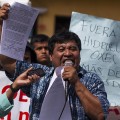
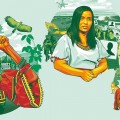 Defending tomorrow: The climate crisis and threats against land and environmental defenders
Defending tomorrow: The climate crisis and threats against land and environmental defenders
 Silence far from golden for child labourers in the mines of Uganda
Silence far from golden for child labourers in the mines of Uganda
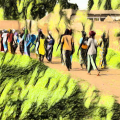 As COVID-19 crisis rages, 119 groups from 30 countries push urgent demands for rural peoples
As COVID-19 crisis rages, 119 groups from 30 countries push urgent demands for rural peoples
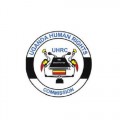 Investigate the criminalization of land rights defenders – witnessradio.org asks National Human Rights Body.
Investigate the criminalization of land rights defenders – witnessradio.org asks National Human Rights Body.
You may like
-


Community land rights defenders that have been on trial since 2020; are set to return to court this January.
-


After being tortured by the army, the land rights defender is charged and remanded to prison
-
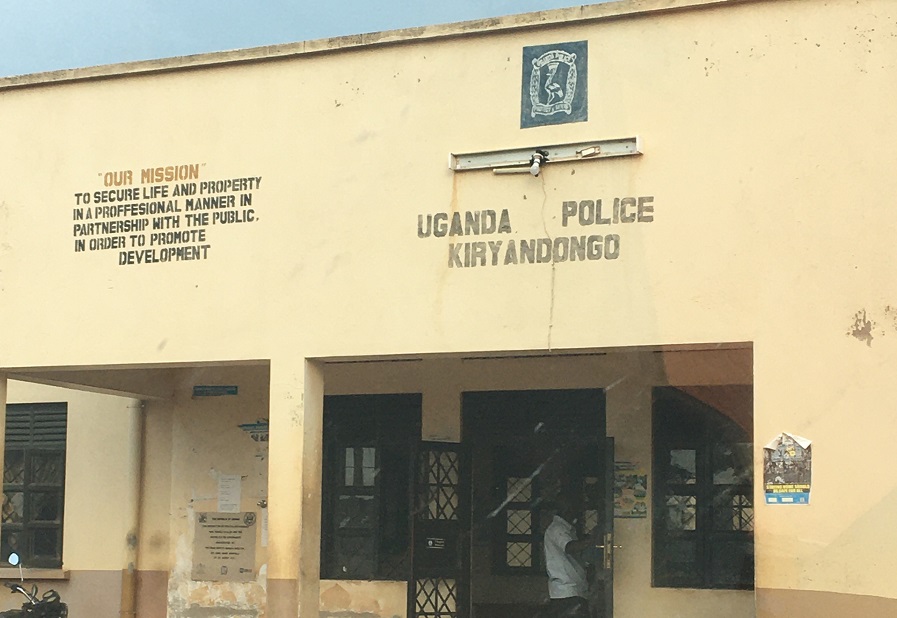

Found! Abducted land rights defender is being held at Kiryandongo district police.
-
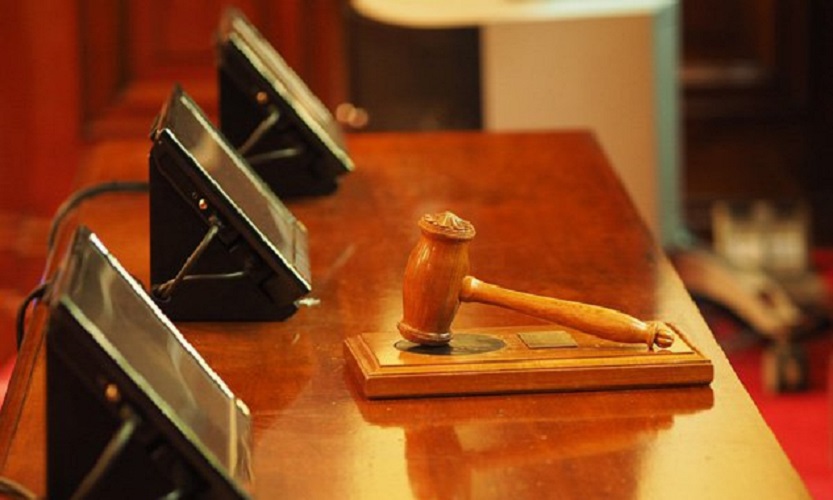

Government ordered to resettle displaced Banyabindi in Kasese
-
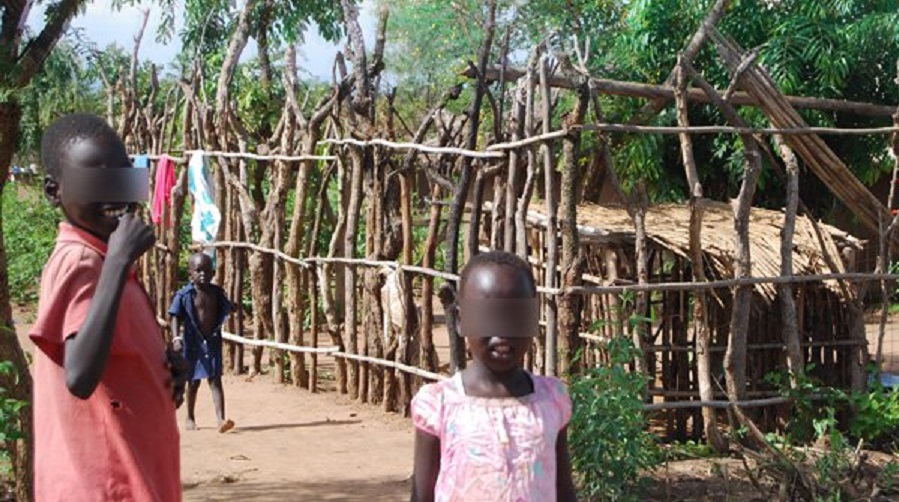

Adjumani officials worry as refugees strip the land bare
-


Court To Determine Whether To Stop An Illegal Eviction Of 3000 People In Mubende
MEDIA FOR CHANGE NETWORK
Young activists fight to be heard as officials push forward on devastating project: ‘It is corporate greed’
Published
3 months agoon
August 27, 2025
“We refuse to inherit a damaged planet and devastated communities.”
Youth climate activists in Uganda protesting the East African Crude Oil Pipeline, or EACOP, are frustrated with the government’s response to their demonstration as the years-long project moves forward.
According to the country’s Daily Monitor, youth activists organized with End Fossil Occupy Uganda took to the streets of Kampala in early August to protest EACOP. The pipeline, under construction since about 2017 and now 62 percent complete, is set to transport crude oil from Uganda’s Tilenga and Kingfisher fields through Tanzania to the Indian Ocean port of Tanga by 2026.
Activists noted the devastating toll, with group spokesperson Felix Musinguzi saying that already around 13,000 people “have lost their land with unfair compensation” and estimating that around 90,000 more in Uganda and Tanzania could be affected. End Fossil Occupy Uganda has also warned of risks to vital water sources, including Lake Victoria, which it says 40 million people rely on.
The group has been calling on financial institutions to withdraw funding for the project. Following a demonstration at Stanbic Bank earlier in the month, 12 activists were arrested, according to the Daily Monitor.
Some protesters were seen holding signs reading “Every loan to big oil is a debt to our children” and “It’s not economic development; it is corporate greed.”
Meanwhile, the regional newspaper says the government has described the activist efforts as driven by foreign actors who mean to subvert economic progress.
EACOP’s site notes that its shareholders include French multinational TotalEnergies — owning 62 percent of the company’s shares — Uganda National Oil Company, Tanzania Petroleum Development Corporation, and China National Offshore Oil Corporation.
The wave of young people taking action against EACOP could be seen as a sign of growing public frustration over infrastructural projects that promise economic gain while bringing harm to local communities and ecosystems. Activists say residents face costly threats from pipeline development, such as forced displacement and the loss of livelihoods.
Environmental hazards to Lake Victoria could also disrupt water supplies and food systems, bringing the potential for both financial and health impacts. Just 10 years ago, an oil spill in Kenya caused a humanitarian crisis. The Kenya Pipeline Company reportedly attributed the spill to pipeline corrosion, which led to contamination of the Thange River and severe illness.
The EACOP project has already locked the region into close to a decade of development, and concerns about the pipeline and continued investments in carbon-intensive systems go back just as long. Youth activists, as well as concerned citizens of all ages, say efforts to move toward climate resilience can’t wait. “As young people, we refuse to inherit a damaged planet and devastated communities,” Musinguzi said, per the Monitor.
Source: The Cool Down
Related posts:

 Put people above profits – Climate Activists urge Total to defund EACOP
Put people above profits – Climate Activists urge Total to defund EACOP
 EACOP: The number of activists arrested for opposing the project is already soaring in just a few months of 2025
EACOP: The number of activists arrested for opposing the project is already soaring in just a few months of 2025
 EACOP activism under Siege: Activists are reportedly criminalized for opposing oil pipeline project in Uganda.
EACOP activism under Siege: Activists are reportedly criminalized for opposing oil pipeline project in Uganda.
 The East African Court of Justice fixes the ruling date for a petition challenging the EACOP project.
The East African Court of Justice fixes the ruling date for a petition challenging the EACOP project.
WITNESS RADIO MILESTONES
Why matooke farming is losing ground in Bukedi
Published
3 months agoon
August 27, 2025
On a humid morning in Namusango Village, Kamonkoli South Ward, Kamonkoli Town Council in Budaka District, 58-year-old farmer James Kainja walks at the edge of what used to be his flourishing matooke garden. For generations, the green banana plant—matooke—stood tall in Uganda’s farmlands, its broad leaves swaying in the wind and its heavy bunches promising a warm, hearty meal. But in Bukedi Sub-region today, that story is fading. Between the tired banana stools, spear grass has taken over. A few bunches hang small and low quality. “We used to harvest every week,” Mr Kainja says, dusting his palms.
“Now, it is once in a while and the money is not worth the struggle,” he adds. Across Bukedi, particularly in Pallisa, Budaka, Butebo, and Kibuku, the banana plants are shrinking back, replaced by maize, cassava, rice, and other faster-growing crops. The sub-region that once sent truckloads of matooke to nearby districts now measures its banana harvest in small piles under tarpaulin. Where the green canopy of banana leaves once dominated, the landscape has changed. For many farmers, the decision is not about abandoning tradition but about survival.
Matooke as culture
In many Bukedi households, matooke still holds cultural value, especially during weddings, funerals, and community gatherings. But with fewer plantations, sourcing enough bunches has become harder and more expensive. Matooke is now imported into Bukedi from Mbale and Mbarara. Mr Abubakar Nanghejje, an elder in Kibuku, warns: “If this trend continues, our children may only know matooke from stories. We are losing more than a crop—we are losing a piece of who we are.”
He adds that matooke, once abundant, is now a luxury: “People only access matooke during ceremonies because the cost of a bunch has turned expensive,” he explains. Within Kibuku Town Council, women sell matooke in pieces: three or four fingers for Shs1,000, while a complete bunch costs between Shs30,000 and Shs35,000. This contrasts sharply with central and western Uganda, where matooke is more than a crop—it is an identity, a culture, and a livelihood. Yet across the country, banana plantations are thinning out, replaced by maize, beans, or simply abandoned.
Farmers’ voices
Mr Peter Mwigala, a 73-year-old farmer from Bubulanga Village, recalls with nostalgia: “I grew matooke for 30 years. But now my plantation is less than half what it used to be. The pests are too many, the prices are too low, and the rains are no longer reliable.” His story echoes across villages, evidence of a slow, steady decline in matooke production. This decline has unfolded over two to three decades, rather than as a sudden collapse. Agricultural researchers point to several reasons. Among them, banana bacterial wilt (BBW), banana weevils, and nematodes that have devastated plantations in major banana-growing areas. These pests cause premature ripening, rotting, and eventual uprooting of infected plants.
“When wilt enters your plantation, you can lose everything in one season,” says Mr Abner Botiri, an agriculture officer in Budaka. He further explains that erratic rainfall and prolonged dry spells also take a toll. Matooke thrives in consistent moisture, but under drought stress it yields smaller bunches. Repeated losses have led some farmers to abandon the crop entirely. Continuous cultivation without soil management has also depleted many banana-growing soils. Beyond agronomic challenges, the economics of matooke farming have shifted dramatically. Local market prices fluctuate widely depending on supply, while transport costs have risen sharply.
Mr John Gwanyi, a 71-year-old farmer, recalls: “In the 1980s and 1990s, matooke farmers could educate children through primary, secondary, and tertiary levels, and still cover basic needs. Today, a whole plantation might not pay for one term’s school fees.” Urbanisation has worsened the trend. Younger generations moving to towns now eat rice, spaghetti, and bread more frequently.
The once sacred matooke meal is no longer the undisputed centrepiece of Ugandan dining tables. Meanwhile, land fragmentation leaves families with smaller plots, unable to sustain large banana plantations. In some areas, higher-value or quicker-return crops like coffee, passion fruit, or maize dominate. As one agricultural economist notes: “A bunch of matooke takes nine months to mature, but maize can be ready in three months. For cash-strapped farmers, that difference matters.
Government interventions
Government and research institutions have made several attempts to address the situation. The National Agricultural Research Organisation (NARO) has introduced resistant banana varieties and promoted good agronomic practices. NGOs are training farmers in mulching, proper spacing, and integrated pest management. Still, the decline carries a cultural weight. In Buganda, for instance, matooke is central to marriage ceremonies, community gatherings, and daily life.
“When you serve matooke at a function, it shows respect,” explains Mr Badiru Kirya, a cultural leader in Obwa Ikumbania bwa Bugwere. Yet, Mr Kirya attributes part of the decline to newer banana varieties introduced by research agencies. “The old varieties planted by our grandparents could withstand weather changes better. These new varieties are weaker against climate volatility,” he says. He also notes that soil infertility and population pressure have accelerated the decline, as families squeeze more onto smaller pieces of land.
National standing
Uganda remains one of the world’s largest banana consumers, with per capita consumption estimated at 250–300 kg annually in some regions. Yet, national banana production has generally declined. According to the Uganda Bureau of Statistics (UBOS) 2024 census, only 27.1 percent of households participate in banana cultivation. Dr Sadik Kassim, the NARO deputy director general in-charge of agricultural promotion, highlights several factors. “Soil fertility has gone low, while pests and disease build-up have grossly affected matooke gardens. Erratic rainfall and climate change further reduce yields.
Poor agricultural practices have made the decline worse,” he says. However, Dr Kassim dismisses the claim that new technologies are to blame. Similarly, Dr Rabooni Tumuhimbise, the director of research at Rwebitaba Zonal Agricultural Research and Development Institute, said: “As of now, I am not aware that Bukedi has registered a decline in banana production. This needs verification before conclusions.” But farmers and local leaders insist the reality is clear: matooke is disappearing from Bukedi. Mr Arthur Wako Mboizi, a seasoned politician and opinion leader, argues: “Bukedi has drastically registered a total decline in banana production due to various factors, including soil infertility, diseases, and erratic rainfall.”
Efforts are underway to add value. Under the Presidential Initiative on Banana, NARO and Kilimo Trust have developed matooke-based products such as flour, bread, and cakes. More than 13 million Ugandans consume bananas as their staple, and 75 percent of farmers grow them, contributing nearly $440 million annually to the economy. Yet, for Bukedi, the reality is sobering. The once proud producer of matooke is a shadow of its former self. As Mr Nanghejje, the Kibuku elder, put it: “We are losing more than a crop. We are losing a piece of who we are.”
Background
In 2024, national banana production was estimated at 6 million tonnes annually, 70 percent of which was consumed at household level and 30 percent sold.
The Banana Merchandise Trade Statistics Bulletin (2024) shows export earnings rose from $2.1 million in June 2023 to $2.4 million in June 2024. Still, yields remain below potential—currently 5–30 tonnes per hectare compared to an attainable 60–70 tonnes. Uganda’s banana losses to wilt disease are massive, with officials estimating a 71.4 percent loss of potential harvest annually, worth nearly $300 million.
Source: Monitor
Related posts:

 Govt injects Shs47b into cassava growing in Bukedi
Govt injects Shs47b into cassava growing in Bukedi
 Uganda’s natives are becoming more powerless; losing land everyday, says a New Research Report
Uganda’s natives are becoming more powerless; losing land everyday, says a New Research Report
 Omoro farmers task Naro on crop varieties
Omoro farmers task Naro on crop varieties
 Uganda losing agricultural advantage to neighbours – UN.
Uganda losing agricultural advantage to neighbours – UN.
MEDIA FOR CHANGE NETWORK
Cases against anti-EACOP activism are skyrocketing in Uganda. Witness Radio has documented close to 60 cases in the last eight months.
Published
4 months agoon
August 7, 2025
By the dedicated efforts of the Witness Radio team.
The Witness Radio team has documented nearly 60 cases of arrest, detention, and prosecution targeting activists protesting the East African Crude Oil Pipeline (EACOP) since January 2025.
The $5 billion EACOP project, led by TotalEnergies and its partners, involves the construction of a 1,444km heated pipeline from Hoima in Uganda to Tanga in Tanzania. This pipeline, which will transport crude oil from the Tilenga and Kingfisher fields, has been a subject of controversy due to its potential environmental and social impacts.
As activism against the EACOP Project grows in Uganda, youth activists leading the cause face strong resistance from the government and its agents, who are pushing for the development of oil activities, including EACOP. Their bravery in the face of such adversity is truly inspiring.
The activists have continuously been suppressed and weakened with torture, unlawful arrests, and prolonged detentions accompanied by unscrupulous charges. The injustice they face is a call for empathy from all who hear their story.
The latest incident happened on Friday, August 1, 2025, when the police brutally arrested 12 environmental activists at Stanbic Bank Headquarters in Kampala. The urgency of the situation is apparent, as the activists were protesting against the bank’s financing of the EACOP project.
On March 26, 2025, EACOP Ltd., the company in charge of the construction and future operation of the EACOP project, announced new project financing from regional banks such as Stanbic Bank Uganda Limited, KCB Bank Uganda, African Export-Import Bank (Afreximbank), the Standard Bank of South Africa Limited, and the Islamic Corporation for the Development of the Private Sector (ICD). The announcement sparked widespread alarm and outcry, with activists urging the banks to immediately withdraw their support and halt the financing of the project.
These activists, individuals from Civil Society Organisations (CSOs) and environmental enthusiasts, strongly oppose the implementation of the EACOP project. They cite its harmful effects, including the displacement of thousands of people, damage to sensitive ecosystems, a threat to water resources, and exacerbating climate change mainly through carbon emissions. They argue that the short-term economic benefits do not justify these long-term consequences.
In doing their work, they have ended up in the hands of the authorities with numerous charges slapped against them. The latest remandees include Teopista Nakyambade, Shammy Nalwadda, Dorothy Asio, Shafik Kalyango, Habibu Nalungu, Noah Kafiiti, Ismael Zziwa, Ivan Wamboga, Akram Katende, Baker Tamale, Keisha Ali, and Mark Makobe.
On the same day of their arrest, the victims were arraigned before the Buganda Road Chief Magistrate Winnie Nankya, who charged them with common nuisance. She later remanded them to Luzira prison until August 18, 2025.
Section 160 of the Penal Code Act, Cap 120 states that a person convicted of common nuisance faces a one-year imprisonment.
In response, the Stanbic Bank manager for corporate communications, Mr. Kenneth Agutamba, confirmed that the bank is financing the EACOP project, justifying that it aligns with and balances environmental sustainability and economic development in the country.
Ever since this year started, Witness Radio has documented 56 cases of arrests and illegal detentions of EACOP activists, with most of them being charged with common nuisance. Below is a chronology of these incidents as they happened.
| Date | Incident | Charge |
| 26th Feb. 2025 | 11 activists were arrested while marching to the European Union offices deliver a petition concerning TotalEnergies’ involvement in harmful fossil fuels in Uganda. | Common nuisance |
| 19th Mar. 2025 | 4 activists were arrested while marching to the Parliament of Uganda to deliver a petition to the speaker, Anita Annet Among, in protest of the ongoing construction of the EACOP Project. | Common nuisance |
| 2nd April, 2025 | 9 activists were arrested while marching to Stanbic bank offices. | Common nuisance |
| 23rd of April, 2025 | A group of 11 activists were arrested as peacefully went to deliver a petition to KCB Uganda offices challenging its will to fund the EACOP project. | Criminal trespass. |
| 21 May 2025 | 9 activists arrested while protesting KCB financing of the EACOP | Common nuisance. |
| 1 Aug. 2025. | 12 activists arrested for protesting the Stanbic bank funding. | common nuisance |
According to Witness Radio’s special report, “Activism on Trial: Despite the increasing repressive measures, Uganda’s EACOP Protesters are achieving unexpected victories in the country’s justice systems,” released last month, a case review revealed that while Uganda’s justice system is being used to suppress the activities of youth activists opposing the EACOP project, many of these cases have lacked merit and were ultimately dismissed.
The report found that none of the activists had been convicted, though they continue to face prolonged court processes marked by repeated adjournments. “Of a sample of 20 documented cases since 2022 involving the arrest of over 180 activists, 9 case files have either been dismissed by the courts or closed by the police due to lack of prosecution, another signal indicating the relevance and legitimacy of their work, while 11 cases remain ongoing,” the report noted.
Related posts:

 EACOP activism under Siege: Activists are reportedly criminalized for opposing oil pipeline project in Uganda.
EACOP activism under Siege: Activists are reportedly criminalized for opposing oil pipeline project in Uganda.
 Breaking: over 350,000 acres of land were grabbed during Witness Radio – Uganda’s seven months ban.
Breaking: over 350,000 acres of land were grabbed during Witness Radio – Uganda’s seven months ban.
 EACOP: The number of activists arrested for opposing the project is already soaring in just a few months of 2025
EACOP: The number of activists arrested for opposing the project is already soaring in just a few months of 2025
 Crackdown on EACOP protesters intensifies: 35 Activists arrested in just four months.
Crackdown on EACOP protesters intensifies: 35 Activists arrested in just four months.

EALA members renew push for unified sub-regional Agroecology Law during Mukono meeting.

East African lawmakers and CSO leaders are meeting in Uganda to draw up plans to promote Agroecology as an alternative to climate change mitigation.

Kenyan farmers secure right to share local seeds in court ruling

Land for over 1000 families claimed to be a forest reserve and grabbed by NFA is now used for cattle keeping under heavy Army guardship – Witness Radio.

Happening shortly! Kenya’s upcoming court ruling on the Seed Law could have a significant impact on farmers’ rights, food sovereignty, and the country’s food system.

Activists storm TotalEnergies’ office ahead of G20 Summit, demand end to fossil fuel expansion in Africa

“Vacant Land” Narrative Fuels Dispossession and Ecological Crisis in Africa – New report.

Report reveals ongoing Human Rights Abuses and environmental destruction by the Chinese oil company CNOOC

Innovative Finance from Canada projects positive impact on local communities.
Over 5000 Indigenous Communities evicted in Kiryandongo District
Petition To Land Inquiry Commission Over Human Rights In Kiryandongo District
Invisible victims of Uganda Land Grabs
Resource Center
- REPARATORY AND CLIMATE JUSTICE MUST BE AT THE CORE OF COP30, SAY GLOBAL LEADERS AND MOVEMENTS
- LAND GRABS AT GUNPOINT REPORT IN KIRYANDONGO DISTRICT
- THOSE OIL LIARS! THEY DESTROYED MY BUSINESS!
- RESEARCH BRIEF -TOURISM POTENTIAL OF GREATER MASAKA -MARCH 2025
- The Mouila Declaration of the Informal Alliance against the Expansion of Industrial Monocultures
- FORCED LAND EVICTIONS IN UGANDA TRENDS RIGHTS OF DEFENDERS IMPACT AND CALL FOR ACTION
- 12 KEY DEMANDS FROM CSOS TO WORLD LEADERS AT THE OPENING OF COP16 IN SAUDI ARABIA
- PRESENDIANTIAL DIRECTIVE BANNING ALL LAND EVICTIONS IN UGANDA
Legal Framework
READ BY CATEGORY
Newsletter
Trending
-
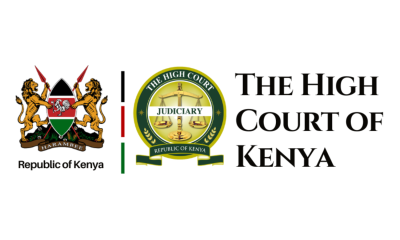
 MEDIA FOR CHANGE NETWORK5 days ago
MEDIA FOR CHANGE NETWORK5 days agoHappening shortly! Kenya’s upcoming court ruling on the Seed Law could have a significant impact on farmers’ rights, food sovereignty, and the country’s food system.
-

 MEDIA FOR CHANGE NETWORK2 weeks ago
MEDIA FOR CHANGE NETWORK2 weeks agoActivists storm TotalEnergies’ office ahead of G20 Summit, demand end to fossil fuel expansion in Africa
-
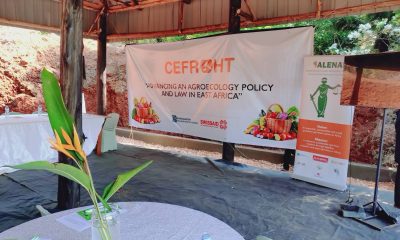
 MEDIA FOR CHANGE NETWORK4 days ago
MEDIA FOR CHANGE NETWORK4 days agoEast African lawmakers and CSO leaders are meeting in Uganda to draw up plans to promote Agroecology as an alternative to climate change mitigation.
-
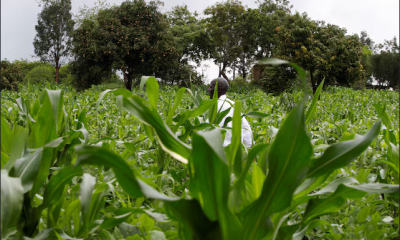
 MEDIA FOR CHANGE NETWORK4 days ago
MEDIA FOR CHANGE NETWORK4 days agoKenyan farmers secure right to share local seeds in court ruling
-
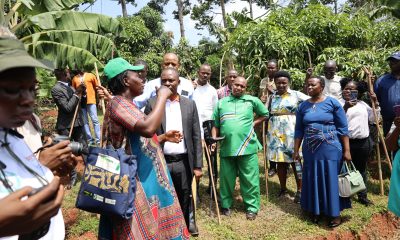
 MEDIA FOR CHANGE NETWORK2 days ago
MEDIA FOR CHANGE NETWORK2 days agoEALA members renew push for unified sub-regional Agroecology Law during Mukono meeting.
-
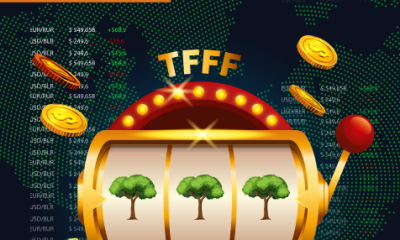
 MEDIA FOR CHANGE NETWORK2 weeks ago
MEDIA FOR CHANGE NETWORK2 weeks agoEnvironmentalists reject TFFF, warning it will deepen forest destruction.
-

 MEDIA FOR CHANGE NETWORK4 days ago
MEDIA FOR CHANGE NETWORK4 days agoLand for over 1000 families claimed to be a forest reserve and grabbed by NFA is now used for cattle keeping under heavy Army guardship – Witness Radio.
-
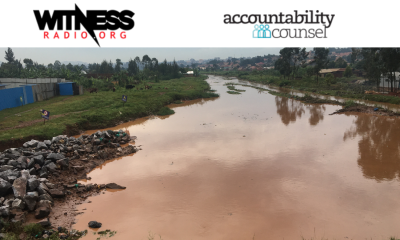
 STATEMENTS6 days ago
STATEMENTS6 days agoJoint Statement Response by Advisers of PAPs to the DRS Follow-Up Report on the Uganda KIIDP-2 Case
